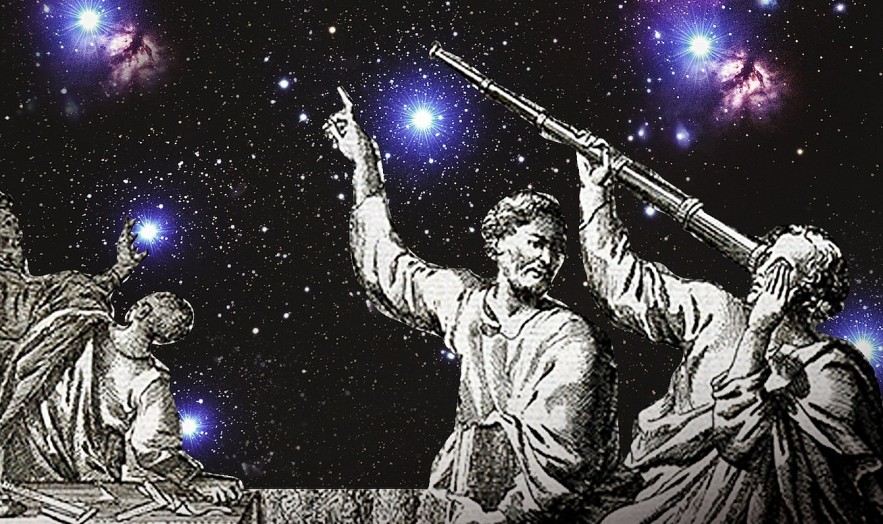Why is Astrology Still Popular Even Though It's Not A Science?
♦ Can Planets Collide In Space?
♦ Difference Between Astrology and Astronomy
 |
| Astrology is not considered a scientific field. Photo: BIG THINK |
Difference Between Astrology and Astronomy
Astrological theories suggest that the positions of the planets and stars influence people and the things that happen to them: work, personality, and love.
Astrologers make predictions based on the positions of the planets at the time of your birth, according to IFLScience.
In contrast, astronomy makes predictions about phenomena such as planetary motion and the expansion of galaxies.
Astronomers explain their predictions by properties such as mass, distance, and gravity.
Associate professor of anthropology Talia Dan-Cohen and professor of philosophy Carl Craver, who teach at Washington University-St. Louis (USA), thinks it is important to separate the question: Is astrology a science or not? And is it right or wrong?
Astrology makes only seemingly scientific claims
In essence, science involves making predictions and checking facts.
Astrologers, like astronomers, also make scientific claims about the "world of stars".
For a very long time, until the seventeenth and eighteenth centuries, astronomy and astrology were practiced side by side.
After all, knowing the positions of the planets relative to the stars is necessary, in order to make accurate predictions about how their positions affect human affairs.
Even the famous astronomers Galileo and Kepler practiced astrology. They want to know how things work, to be able to predict how things will turn out in the future.
Astrological predictions are always vague
But here's the thing: Checking the predictions that astrology makes about people's lives, chemistry is just a guess.
There is currently no evidence that galaxies are capable of affecting human life. Every astrological scientific claim about the "world of the stars" is false. The scientific basis for astrological claims is completely obscure. Centuries have passed, astrology has always remained at the level of making predictions.
Meanwhile, theories of astronomy have been constantly evolving over the years, with advances in technology. Predictions, astronomical theories are frequently corrected in response to increasingly precise measurements.
For example, Einstein's general relativity surpassed Newton's general relativity, as it accurately predicted the annual transit of Mercury's closest point to the Sun.
Why is astrology still popular?
But why do so many people find astrology so useful, when its predictions have no solid basis?
In fact, nearly 30% of Americans believe in astrology.
It's one of many tools by which we can tell stories about ourselves to understand who we are. We look for stories to explain: Why are we like this? Why do puzzling experiences always seem to happen to me?
In this sense, the success of astrology is that it often strikes a chord with bewildered people.
In some cases, astrology is also a helpful cue for self-reflection.
Perhaps astrology is useful under these circumstances. The stars are nothing more than illustrative images of predictions.
 Why Does the Moon Affect the Tides Though It is 384,000 KM from Earth Why Does the Moon Affect the Tides Though It is 384,000 KM from Earth Tides are the rise and fall of sea water in a cycle of astronomical changes. Tides occur due to the Moon's gravitational pull on the ... |
 Facts About the Human Body Emits Visible Light Facts About the Human Body Emits Visible Light Parapsychologists believe that all people and objects have the ability to emit aura, but to varying degrees and not everyone realizes it. |
 Facts About the Levitation Technology: Can People Fly in the Air? Facts About the Levitation Technology: Can People Fly in the Air? The levitation technology goes against Newton's law of universal gravitation. Join Knowinsiders.com to discover and check the truth about the mystery of the martial arts ... |
 Amazing Facts About The World's Loneliest House on Ellidaey Remote Island Amazing Facts About The World's Loneliest House on Ellidaey Remote Island A picturesque house on a remote uninhabited island sounds like a fairy tale. It has been empty for more than 100 years. It is dubbed ... |























